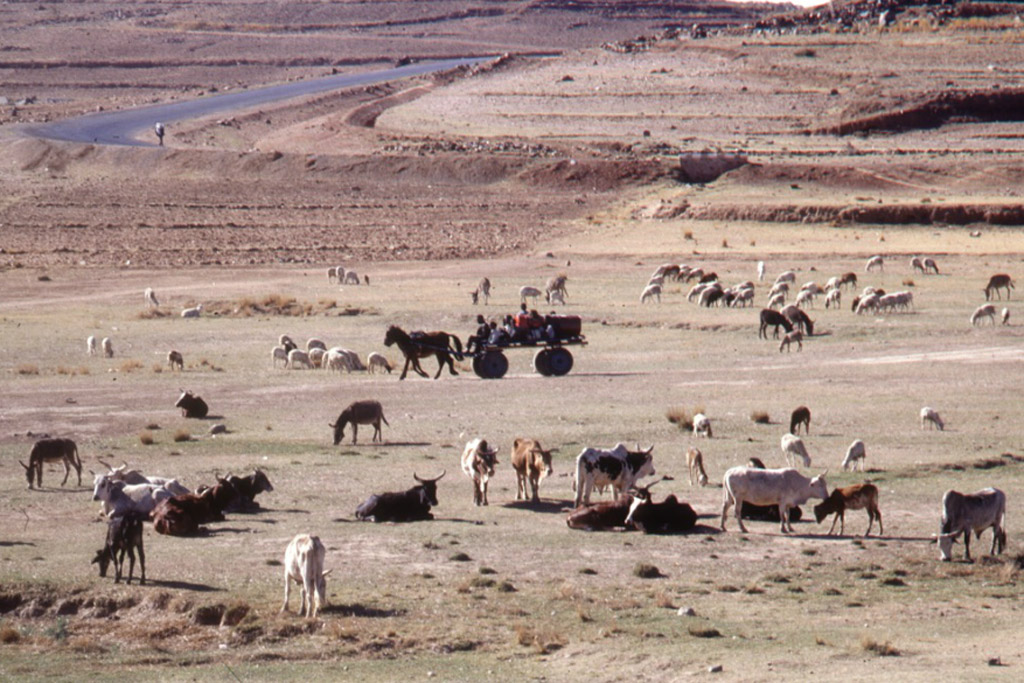May 30, 2025 11:07 am (IST)

UN spotlights climate-smart approach to spark rural renewal
New York, Jun 7 (IBNS): As the global farming community continues to curb climate change and food insecurity, the United Nations agriculture agency on Friday spotlighted the best practices of its "climate-smart" approach to tackle those challenges and spark rural renewal.
"A shift to climate-smart agriculture will not only help shield farmers from the adverse effects of climate change and offer a way to reduce greenhouse gas emissions,” said Helena Semedo, Deputy Director-General of the UN Food and Agriculture Organization (FAO), stressing that it “can also improve farm yields and household incomes, leading to stronger, more resilient communities."
The newly released FAO success stories on climate-smart agriculture, underscores the urgency of combating climate change, the magnitude and scope of which has a universal and critical impact on agricultural systems. Therefore, safeguarding global food security needs galvanize rural communities' resilience and adaptation.
Rising temperatures and frequent weather extremes, according to the Fifth Assessment Report of the Intergovernmental Panel on Climate Change (IPCC), will have direct and negative consequence on crops, livestock, forestry, fisheries and aquaculture productivity. Of great risk are those vulnerable and farming-dependent populations in the developing world.
"We can no longer afford to separate the future of food security from that of natural resources, the environment and climate change – they are inextricably intertwined and our response must be as well," Semedo warned.
However, this alarming situation has spurred an opportunity to gain traction on climate-smart agriculture, which includes the following three broad objectives: to sustainably increase agricultural productivity and incomes; to adapt and build resilience to climate change; and to reduce or remove greenhouse gas emissions where possible.
In its publication, FAO highlights the diversity of potential options across the globe and in various agricultural systems:
In China, for example, a pilot project has been launched to educate yak herders and provide tools to restore degraded grasslands, improving the productivity of their herds while sequestering atmospheric carbon.
In the highlands of Mount Kilimanjaro, FAO has partnered with farmers in Kenya and Tanzania to reboot an 800 year-old agroforestry system known as Kihamba, aiming to maximize the use of limited land, provide a large variety of foods throughout the year, and maintain groundwater health.
Along the north Pacific coast of Nicaragua, the UN agency has introduced an ecosystem approach to fisheries and aquaculture to boost food and income from fish products, while preserving ecosystem and increase resilience to climate change.
(Livestock can , play an important role in both adapting to climate change and mitigating its effects on human welfare. Photo: FAO/Roberto Faidutti)
Support Our Journalism
We cannot do without you.. your contribution supports unbiased journalism
IBNS is not driven by any ism- not wokeism, not racism, not skewed secularism, not hyper right-wing or left liberal ideals, nor by any hardline religious beliefs or hyper nationalism. We want to serve you good old objective news, as they are. We do not judge or preach. We let people decide for themselves. We only try to present factual and well-sourced news.
Support objective journalism for a small contribution.
Latest Headlines
India to receive ‘above normal’ showers in June, IMD raises monsoon forecast by 106%
Tue, May 27 2025
Hawaii's Kilauea Volcano erupts with 1,000-foot 'lava fountaining'
Mon, May 26 2025
Flight ops hit, several streets waterlogged as Delhi receives heavy overnight rains
Sun, May 25 2025
Indian Monsoon rains hit Kerala eight days before schedule
Sat, May 24 2025
Southwest monsoon set to arrive in Kerala early; could be earliest onset since 2009
Tue, May 20 2025







